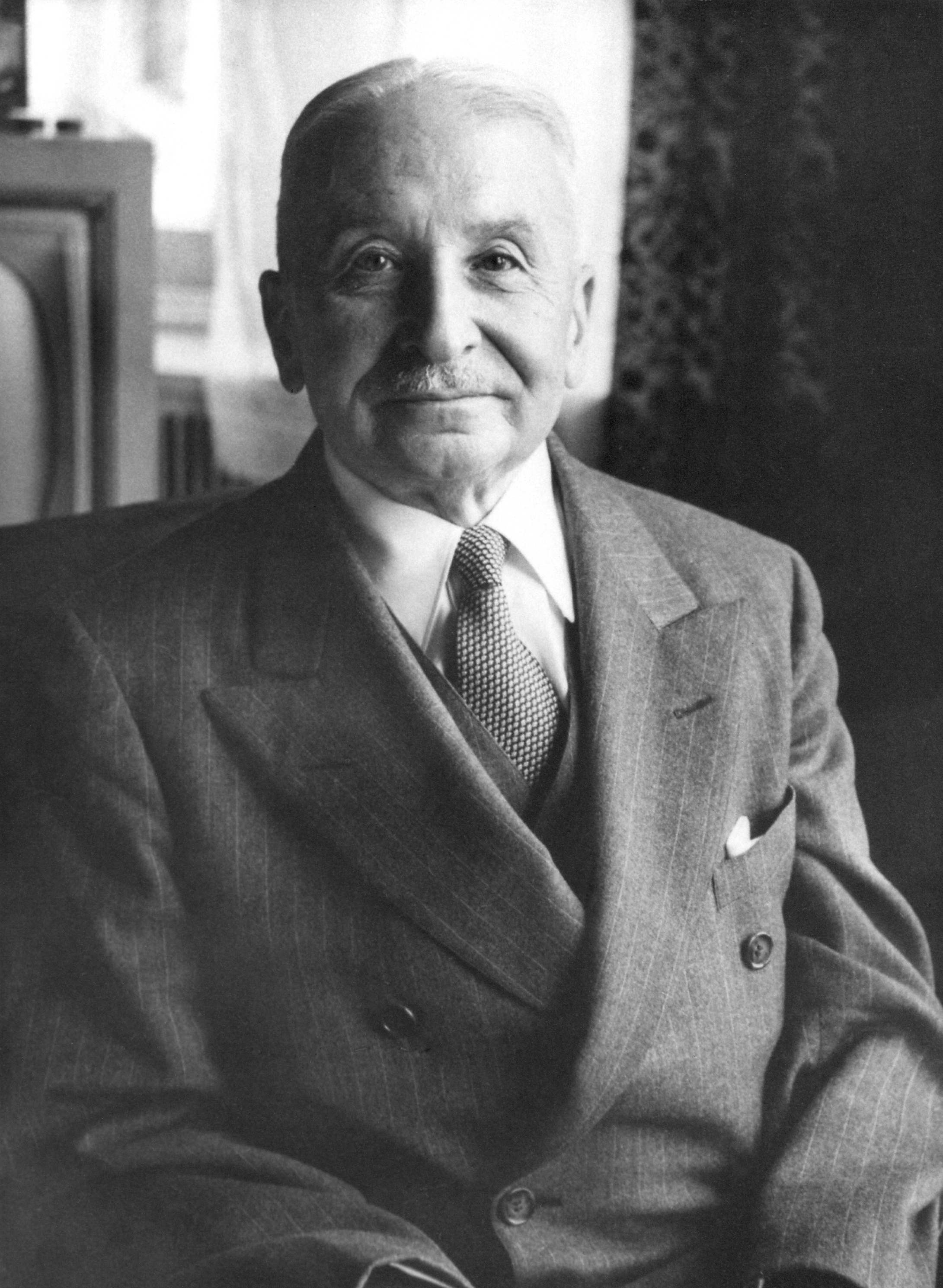
Ludwig von Mises
Ludwig Heinrich Edler von Mises[1] (German: [ˈluːtvɪç fɔn ˈmiːzəs]; 29 September 1881 – 10 October 1973) was an Austrian–American Austrian School economist, historian, logician, and sociologist. Mises wrote and lectured extensively on the societal contributions of classical liberalism and the power of consumers.[2] He is best known for his work on praxeology studies comparing communism and capitalism.
Not to be confused with Ludwig Mies van der Rohe.
Ludwig von Mises
29 September 1881
10 October 1973 (aged 92)
Ferncliff Cemetery, Hartsdale, Westchester County, New York, U.S
Margit von Mises
- Richard von Mises (brother)
- Gitta Sereny (stepdaughter)
- University of Vienna (1919–1934)
- Institut Universitaire de Hautes Études Internationales (1934–1940)
- New York University (1945–1969)
Mises emigrated from Austria to the United States in 1940.[3] Since the mid-20th century, libertarian movements have been strongly influenced by Mises's writings. Mises' student Friedrich Hayek viewed Mises as one of the major figures in the revival of classical liberalism in the post-war era. Hayek's work "The Transmission of the Ideals of Freedom" (1951) pays high tribute to the influence of Mises in the 20th-century libertarian movement.[4]
Mises's Private Seminar was a leading group of economists.[5] Many of its alumni, including Friedrich Hayek and Oskar Morgenstern, emigrated from Austria to the United States and Great Britain. Mises has been described as having approximately seventy close students in Austria.[6]
Reception[edit]
Debates about Mises's arguments[edit]
Economic historian Bruce Caldwell wrote that in the mid-20th century, with the ascendance of positivism and Keynesianism, Mises came to be regarded by many as the "archetypal 'unscientific' economist".[38] In a 1957 review of his book The Anti-Capitalistic Mentality, The Economist said of Mises: "Professor von Mises has a splendid analytical mind and an admirable passion for liberty; but as a student of human nature he is worse than null and as a debater he is of Hyde Park standard".[39] Conservative commentator Whittaker Chambers published a similarly negative review of that book in the National Review, stating that Mises's thesis that anti-capitalist sentiment was rooted in "envy" epitomized "know-nothing conservatism" at its "know-nothingest".[40]
Scholar Scott Scheall called economist Terence Hutchison "the most persistent critic of Mises's apriorism",[41]: 233 starting in Hutchison's 1938 book The Significance and Basic Postulates of Economic Theory and in later publications such as his 1981 book The Politics and Philosophy of Economics: Marxians, Keynesians, and Austrians.[41]: 242 Scheall noted that Friedrich Hayek, later in his life (after Mises died), also expressed reservations about Mises's apriorism, such as in a 1978 interview where Hayek said that he "never could accept the ... almost eighteenth-century rationalism in his [Mises's] argument".[41]: 233–234
In a 1978 interview, Hayek said about Mises's book Socialism:
Books
Book reviews